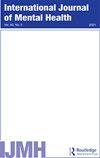新冠肺炎幸存者的昏迷后焦虑、抑郁和创伤后应激障碍症状
IF 1.7
Q3 PSYCHOLOGY, CLINICAL
引用次数: 4
摘要
摘要呼吸道感染有可能导致精神症状,正如在以前的呼吸道感染爆发中所观察到的那样。同样,持续的冠状病毒(新冠肺炎)大流行也可能与精神并发症有关。因此,我们的研究评估了新冠肺炎幸存者3 康复后数月对其精神状态的潜在影响。成年患者(n = 368)的临床参数、血氧饱和度水平和C反应蛋白(CRP)水平进行评估。使用自我报告问卷,评估创伤后应激障碍、抑郁和焦虑症状。还收集了社会地理信息。平均随访CRP水平为6.73 ± 1.78,平均血氧饱和度为97.79 ± 4.25.所有精神病指标的症状排名显著(p < 0.0001)在有精神病史的参与者、女性和住院患者中更高。一般来说,20.4%属于创伤后应激障碍的病理范围;抑郁42.93%,焦虑46.05%。随访CRP水平显著(p < 0.0001)在具有阳性精神病史的患者和已经住院的患者中更高。随访的血氧饱和度水平也显著(p < 0.0023)在家接受治疗的患者中更高。新冠肺炎感染可能会对心理健康产生重大影响,因此会在康复后引发创伤后应激障碍、抑郁和焦虑症状。本文章由计算机程序翻译,如有差异,请以英文原文为准。
Post-illness anxiety, depression and PTSD symptoms in COVID-19 survivors
Abstract Respiratory infections have the potential to cause psychiatric symptoms as has been observed during previous outbreaks of respiratory infections. Similarly, the ongoing Coronavirus (COVID-19) pandemic could also be associated with psychiatric complications. Our study therefore assesses COVID-19 survivors 3 months post-recovery for potential impact on their psychiatric states. Adult patients (n = 368) were evaluated for clinical parameters, oxygen saturation level and C-reactive protein (CRP) level. Using self-report questionnaires, PTSD, depression and anxiety symptoms were assessed. Sociodemographic information was also collected. Mean follow-up CRP level was 6.73 ± 1.78 whiles mean oxygen saturation level was 97.79 ± 4.25. Symptoms for all psychiatric measures ranked significantly (p < 0.0001) higher in participants with previous psychiatric history, in females and in patients who had been hospitalized. Generally, 20.4% fell within the pathological range for PTSD; 42.93% for depression and 46.05% for anxiety. Follow-up CRP levels were significantly (p < 0.0001) higher in patients with positive psychiatric history and in patients that had been hospitalized. Follow-up oxygen saturation levels were also significantly (p < 0.0023) higher in patients who had been managed at home. COVID-19 infection may impact significantly on mental health and hence, trigger PTSD, depression, and anxiety symptoms post-recovery.
求助全文
通过发布文献求助,成功后即可免费获取论文全文。
去求助
来源期刊

INTERNATIONAL JOURNAL OF MENTAL HEALTH
PSYCHOLOGY, CLINICAL-
CiteScore
3.80
自引率
20.00%
发文量
32
期刊介绍:
The official journal of the World Association for Psychosocial Rehabilitation, the International Journal of Mental Health features in-depth articles on research, clinical practice, and the organization and delivery of mental health services around the world. Covering both developed and developing countries, it provides vital information on important new ideas and trends in community mental health, social psychiatry, psychiatric epidemiology, prevention, treatment, and psychosocial rehabilitation.
 求助内容:
求助内容: 应助结果提醒方式:
应助结果提醒方式:


